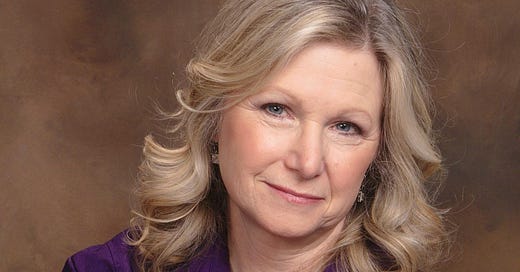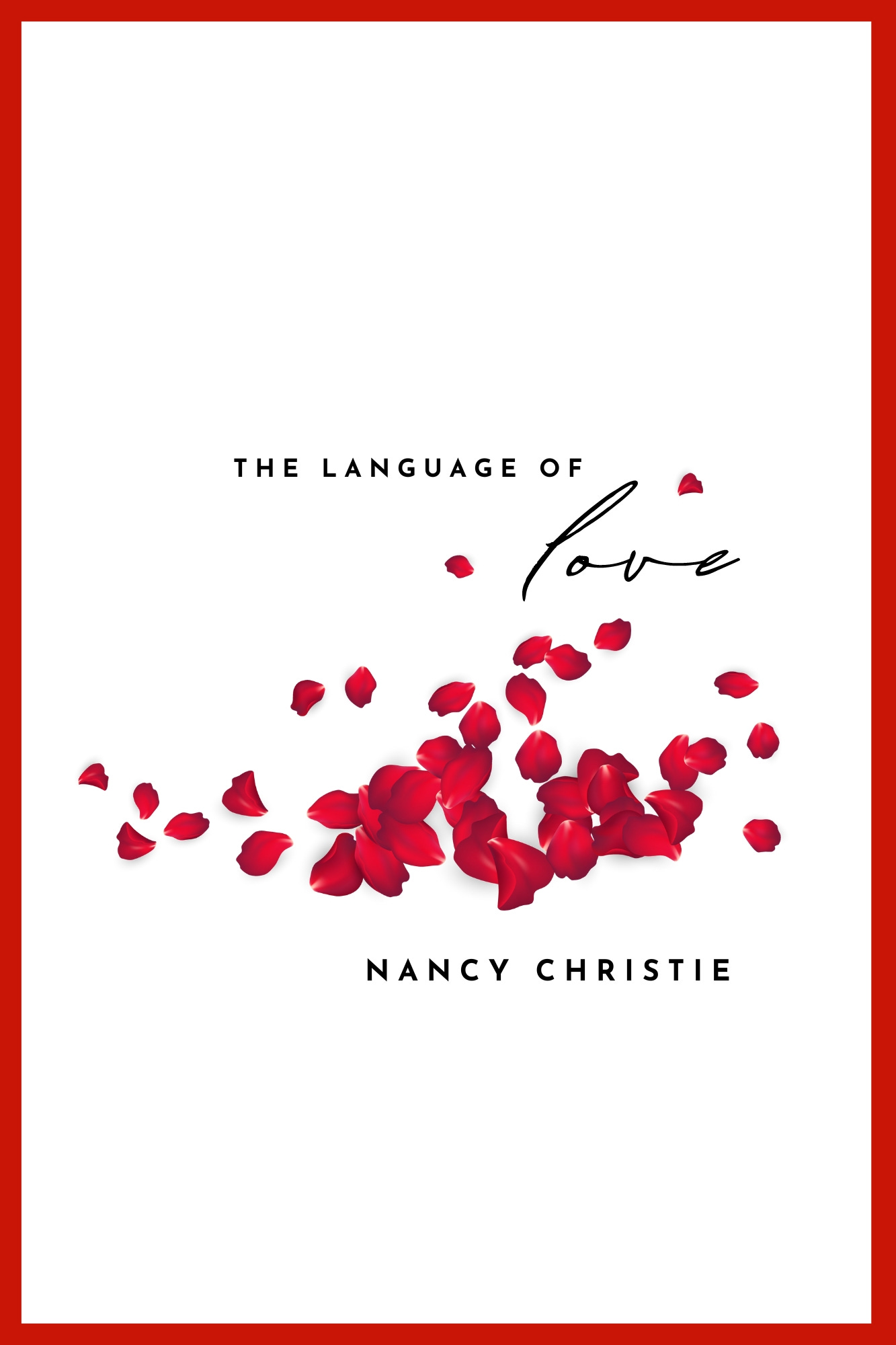#18: An Interview with Nancy Christie
"You can fix what you wrote. You can’t fix what you didn’t write."
Welcome to Archipel, an ongoing dialogue between me (Cara Waterfall) and other poets and creatives of all kinds, celebrating the ways we connect through mentorship, community and transitions.If you are interested in participating, please send me an email by replying to this newsletter or click here.
Archipel was also inspired by my very first poetry mentor, my father. When you purchase a subscription to this newsletter, you are paying into a scholarship fund in his name, which will support emerging poets.
I’m proud to tell you that the fund currently has $2, 313.32 USD! And we will be raising funds until September 1, 2025, which means we have another seven months before we award this fund to a deserving, emerging poet.
To learn more about The Donald E. Waterfall Scholarship Fund, click here.
Thank you for reading!
Today's interview is with Nancy Christie, an accomplished author who brings decades of writing experience and wisdom to her craft, demonstrated through her impressive body of work, which includes two novels, four short story collections and an essay collection.
As the founder of literary events like "Midlife Moxie Day" and "Celebrate Short Fiction Day," Nancy actively contributes to nurturing the writing community. And through her "Living the Writing Life" podcast, she provides valuable insights and inspiration to fellow writers, while maintaining her own rigorous creative practice, rising at dawn to craft stories that resonate with emotional authenticity.
Her work examines pivotal moments in characters' lives through interconnected narratives that delve into human connections, as illustrated in her short story collection, The Language of Love and Other Stories (Unsolicited Press, February 2025)
The collection is conversational and expansive, its power captured perfectly in Nancy’s exploration of grief in “Love Letters”:
“There was no garden the year before last. You were already feeling the effects of the treatment…And last spring—well, I still wasn’t up to the task. Or I still wasn’t ready to take on that final item that was for years your responsibility. Little by little, I have moved tasks from your list to mine, but that was one that had to wait.."
Such moments of uncertainty and hope permeate Nancy’s elegant prose, reflecting our universal struggles with connection and loss.
Order The Language of Love here.
Learn more about the Midlife Moxie Series here.
And sign up for Nancy’s Living the Writing Life podcast here and her newsletter, Nancy’s Book News here!
Who are you and how do you express your creativity or describe your art?
I have to admit that the first question made me immediately think of the one posed by the Caterpillar in Alice in Wonderland—one of my favorite books, by the way!—and Alice’s answer: “I hardly know, sir, just at present—at least I know who I was when I got up this morning, but I think I must have been changed several times since then…”
I too have changed several times in terms of who I am as a writer since I started writing as a child. Now, in my seventieth decade (and how did that happen?) I just might have a handle on the answer.
I am, first, foremost and always, a writer—more specifically, a fiction writer (which includes both short stories and novels), and, in terms of my professional identity, a career author. How I got to that title was a long and winding road. I was always making up stories as a child, and as I grew older, I wrote lots and lots of short stories, nearly all of which are unpublished primarily because I never submitted them! (It actually never occurred to me to do that, crazy as it sounds.) Some finally did get published, then I had several short story collections released, but I always thought of myself as a freelance copywriter who wrote short stories on the side.
It wasn’t until my second novel was published that I fully embraced the title of “career author” and all that goes with it, which includes devoting more time to that aspect of my life than I had in the past. But “fiction writer” will do just fine for the purposes of answering your question and as something to engrave on my tombstone!
What keeps you coming back to creative work? Why is it worth doing?
There’s never a sense of “coming back” to my writing. While I may have had periods of time when I didn’t write as much—and when I refer to writing, I mean primarily fiction—there is a part of me that is always thinking about writing. Creating. Puzzling over something I witnessed or experienced, something I dreamed, some conversation that I overheard.
And then my mind starts running down the familiar What if… path and a story starts to form. It may not always be completed, but I at least make notes about it or begin it enough so that, when I return to it, the engine is still warm and it starts smoothly.
Why is it worth doing? Certainly not for the money! With the release of my latest collection this February (2025), The Language of Love and Other Stories, I’m up to a body of work that includes two novels, four short story collections, two books on writing and an essay collection. And so far I haven’t made enough money from any of them or all nine of them combined to allow me to quit my day job as a freelance copywriter!
So, there must be another reason why I write—especially why I write fiction, which was where I started as a child and where I feel most at home as a writer.
In the end, it’s worth doing because I firmly believe I was given this gift of writing to use it, and to not write would be like throwing it back in the face of God. And that would be rude and ungrateful. Also, writing—giving voice to those imaginary people who have taken up space in my head and have something to say—is something I feel compelled to do, and when I do it, I feel a sense of completeness, of rightness. I just feel good!
And also because if I don’t let those characters out and put them on paper, my brain would become very, very crowded and overwhelmed with all the noise they make!
What legacy do you hope to leave with your art?
That’s a question that comes loaded with expectations that I’m not sure I can satisfy! How about this:
I want my stories to provide enjoyment, hopefully make people think about themselves and others in a different way, generate a sense of empathy for those who are struggling or lost or confused. More narrowly, I hope my Midlife Moxie novels give readers an idea of where to go when where they were is no longer where they want to be or can be.
What are your biggest challenges when it comes to maintaining a steady creative practice, and how have you overcome them?
Time—always time. Or lack thereof. And the pressure that comes with trying to get it all done in not enough time. If I was rich and didn’t have to earn a living from my writing, then I wouldn’t have to worry about meeting client deadlines and publishing deadlines. But I’m not, so I do. So that means I must be a very disciplined writer. A typical day starts at 4 AM with coffee, by 5 AM I’m at my computer, either editing my most recent manuscript or working on a new book or short story, and then, by 9 AM, switching gears and working on client copywriting projects.
Evenings and weekends are all about marketing myself and my books: at signings or workshops, sending out my monthly newsletters or relevant press releases, pitching myself to people like you for interviews on blogs or guest appearances on podcasts, soliciting reviews of my books, reviewing other people’s books, preparing questions to ask guests who will be on my Living the Writing Life podcast or on my blogs.
And somewhere, in the midst of all that, making time for the people I love.
How successful am I at juggling all these tasks and responsibilities? Some days, very successful, other days, not so much. It’s a work-in-progress.
What advice do you have for someone who wants to start or maintain their creative practice in a new way?
Figure out when you feel most creative and use that time for your practice. I’m a morning person, so that’s when I write. Other people do it late at night. Then, and especially if you have multiple responsibilities, commit to at least half an hour a day. You can usually find 30 minutes for your creative practice, and by giving it at minimum that amount of time, you’ll keep the engine warm and ready to go.
And don’t beat yourself up if you’re not happy with what you did on a specific day. I always say that a bad writing day is infinitely better than a no-writing day.
You can fix what you wrote. You can’t fix what you didn’t write.
Why does mentorship/ community support matter?
Having people around you who support and encourage you can keep you going on a bad day. But you need more than that. I believe that your support network should consist of three types of people: the Encouragers who tell you that you can do it, the Challengers who push back when you offer excuses why you can’t, and the Expert Sources (people, workshops, websites or books) that educate you on whatever part of your practice you’re stuck on. It might be the creative side, it might be the marketing side. But their role is to provide you with the information you need to make you better at what you’re doing.
Do you have a mentor?
Not an actual mentor but I have learned a lot from the editors who have worked on my books as well as my fellow members of Monday Night Writers—a monthly writing group I started years ago.
And I would be remiss if I didn’t mention the role of books on writing and about the writing life that have provided me with insight and comfort and a sense of belonging. One book in particular, The Writer on Her Work, had an incredible impact on me from when I first read it in the 1990s, and it still does. I’ll pick it up and read a section and say, “Yes, that’s how I feel! That’s what I’m struggling with!”
To me, a mentor is someone who shines a light when the way ahead is dark. They don’t always tell you which way to go or what to do when you get there. They simply say, “Follow the light and if you need me to move with you for a bit, I will.”
(Interview answers received via email October 28, 2024.)






Thank you so much for the chance to be interviewed by you and talk about my writing life! I so appreciate it!
Another great interview, Cara. I was taken by Nancy C's many writerly insights.